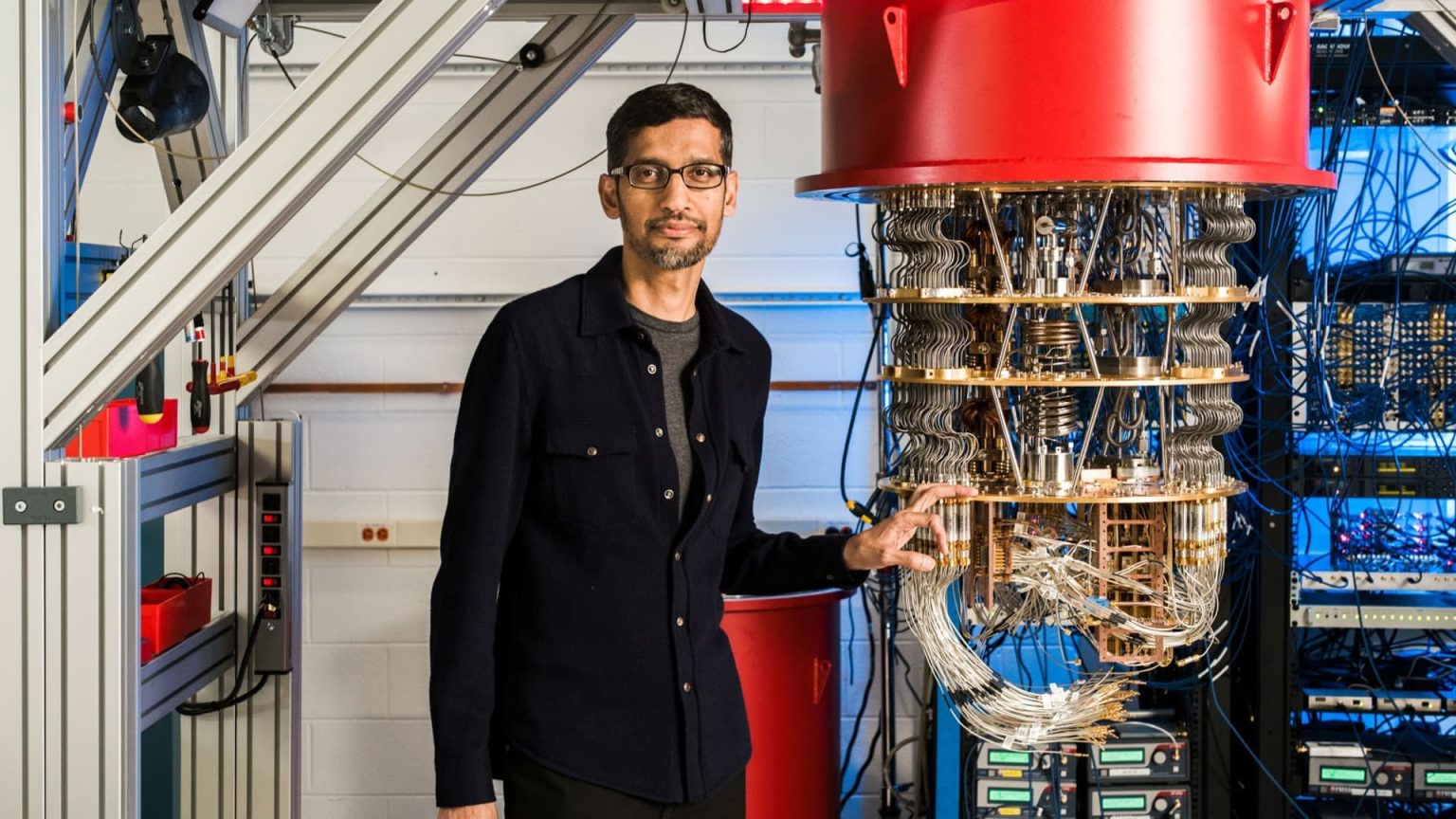In a recent discussion about the future of quantum computing, Julian Kelly, director of hardware at Google Quantum AI, stated that practical applications of quantum technology might emerge within five years. This optimism follows advancements in error correction, which are paving the way for functioning quantum computers that will surpass traditional computing capabilities. The conversation surrounding quantum developments is heating up, spurred by major firms such as Microsoft and Nvidia also pushing limits in this field, signaling a new era in computing technology.
| Article Subheadings |
|---|
| 1) Insights from Google’s Quantum Visionary |
| 2) Advances in Quantum Technology |
| 3) The Implications for AI and Data Generation |
| 4) Industry Reactions and Market Perspectives |
| 5) Looking Ahead: Potential and Challenges |
Insights from Google’s Quantum Visionary
Julian Kelly, a leading figure in Google Quantum AI, has shared ambitious forecasts regarding the future of quantum computing. In a recent interview, he expressed a belief that the technology is on the brink of delivering practical applications that cannot be executed by any modern computers. “We think we’re about five years out from a real breakout that offers pragmatic solutions exclusive to quantum capabilities,” Kelly articulated. He indicated that quantum computers might soon be utilized for complex fields such as physics, potentially spurring the generation of novel data. This forecast arrives in a context where substantial advancements have been achieved, particularly following Google’s announcements in late December regarding progress in error correction techniques.
Advances in Quantum Technology
Quantum technology is experiencing a renaissance, evidenced by significant advancements from various tech companies. In February, Microsoft unveiled its Majorana chip, developed from an entirely new state of matter, as described by CEO Satya Nadella. This chip is designed to facilitate quantum computing processes that were previously deemed unachievable. Google’s latest quantum computer boasts 105 qubits, the fundamental units of quantum information. However, experts assert that achieving effective quantum applications will require exponentially more qubits, potentially in the millions. Developing a quantum computer involves harnessing qubits, which operate under principles of probability, contrasting starkly with traditional binary computing.
The Implications for AI and Data Generation
A novel and speculative aspect of quantum computing discussed by Kelly involves its capacity to generate data for artificial intelligence applications. While he notes that current AI models may not directly translate to quantum computing environments, he highlighted the potential for quantum systems to produce new and unique data sets for future AI training. This capability could redefine how AI algorithms are developed and deployed, paving the way for unprecedented advancements. However, Kelly hesitated to confirm this use case, labeling it speculative, thus underlining the need for further research and exploration.
Industry Reactions and Market Perspectives
The burgeoning interest in quantum computing has ignited discussions among key industry players, including Nvidia, who recently organized a Quantum Day event. At this event, representatives from various leading quantum technology firms, including Amazon and Microsoft, convened to explore the future of quantum innovations. Nonetheless, opinions within the industry have varied, especially following Nvidia CEO Jensen Huang’s earlier skepticism regarding the timeline for practical quantum applications. After receiving substantial pushback after his initial comments, which contributed to stock fluctuations among quantum firms, Huang retracted his stance, acknowledging the complexities yet to be overcome in the field. His reframed approach emphasizes the potential while also cautioning stakeholders about the significant challenges ahead.
Looking Ahead: Potential and Challenges
With Joe Kelly affirming that practical applications for quantum computing could materialize in five years, the horizon appears promising. However, this optimism is tempered by the recognition of substantial technical challenges. These hurdles, including the need for an increased number of qubits and the complexities tied to their management and functionality, indicate that progress may not be linear. Industry analysts assert that while quantum computing holds the potential to transform various fields, including medical research and cryptography, there remains a considerable journey to traverse before the true power of quantum computing is realized. As companies continue to innovate and refine their technological frameworks, the landscape of computing may indeed be poised for a transformative shift.
| No. | Key Points |
|---|---|
| 1 | Julian Kelly from Google asserts practical quantum applications may arise in five years. |
| 2 | Advancements in quantum technology include Google’s 105-qubit computer and Microsoft’s Majorana chip. |
| 3 | The potential for quantum computing to generate new data for AI training was discussed as speculative. |
| 4 | Industry reactions vary, with Nvidia’s CEO acknowledging previous skepticism about the timeline for quantum advancements. |
| 5 | Challenges remain significant in realizing the full capabilities of quantum computing. |
Summary
The insights and advancements presented by industry stalwarts emphasize the promising yet challenging road ahead for quantum computing. As major technology firms continue to innovate, the expected emergence of practical applications in quantum technology promises to enhance fields such as physics and artificial intelligence. However, to achieve this potential, the industry must navigate sizeable technical hurdles and align various stakeholder perspectives regarding the timeline for quantum developments.
Frequently Asked Questions
Question: What is a quantum computer?
A quantum computer is a type of computing device that uses the principles of quantum mechanics to process information, significantly differing from traditional computers that use binary bits.
Question: How does quantum computing compare with classical computing?
While classical computers use bits that are either 0 or 1, quantum computers utilize qubits, which can exist in a state of 0, 1, or both simultaneously, allowing for vastly enhanced processing capabilities.
Question: What are some potential applications of quantum computing?
Potential applications of quantum computing include complex simulations in physics, optimization problems, drug discovery, and the generation of novel datasets for artificial intelligence training.


